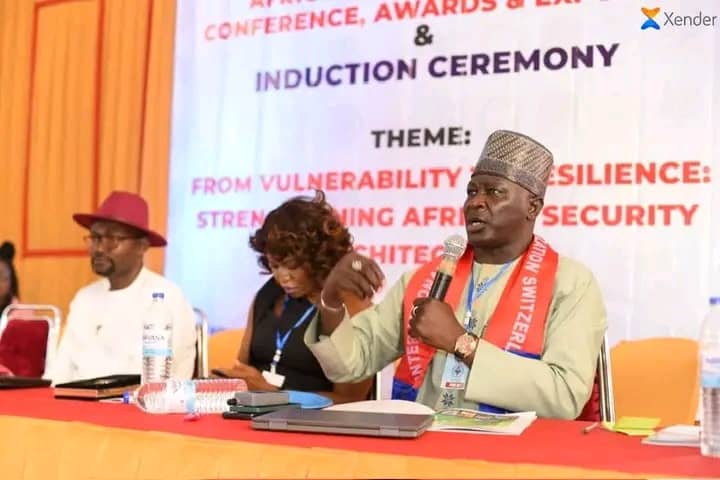The Special Adviser on Security to the Sokoto State Governor, Colonel (Rtd) Ahmed Usman, has warned that the designation of Nigeria as a Country of Particular Concern (CPC) by the United States could pose serious foreign and military threats to the nation’s unity and sovereignty.
Speaking at the Africa Regional Security Conference, Award, and Expo 2025 at the University of Lagos, Col. Usman stressed that the Nigerian government must navigate this designation strategically and wisely to avoid potential consequences.
The retired officer noted that U.S. President Donald Trump’s decision to label Nigeria as a CPC for alleged violations of religious freedom, coupled with threats of military intervention to “protect Christians,” could deepen divisions, embolden extremist groups, and distort Nigeria’s security challenges.
“Nigeria’s security issues, terrorism, banditry, and farmer-herder clashes are driven by resource competition, organized crime, and climate pressures, not government-backed religious persecution. Extremists do not discriminate by religion; all Nigerians, Muslims, Christians, and traditional worshippers suffer equally,” he said.
Col. Usman warned that portraying Nigeria as a “war on Christians” plays into the hands of terrorists seeking to divide the nation. He stressed that Nigeria is a constitutional democracy that protects freedom of religion, and that Christians and Muslims serve together across all branches of government, including the military.
“Designating Nigeria as a CPC or threatening military action will not save lives; it will endanger them. Such actions could legitimize extremist propaganda, erode interfaith cooperation, and fuel sectarian tensions,” he added.
He further emphasized that any unauthorized foreign military intervention on Nigerian soil would be a grave violation of international law and an unacceptable breach of sovereignty.
“Nigeria’s Armed Forces are fully capable of defending all Nigerians. The United States should pursue partnership, not punishment. Support through intelligence sharing, training, and economic development would address the root causes of violence. Sanctions, threats, and political labeling will only deepen distrust,” Col. Usman said.
He concluded by urging a cooperative approach:
“If Washington truly values peace and religious freedom, it must listen to Nigerians, not speak for them. The path to security lies in cooperation, not coercion; in respect, not rhetoric. Nigeria needs partners, not patrons. Dialogue, not designation. Cooperation, not coercion.”















